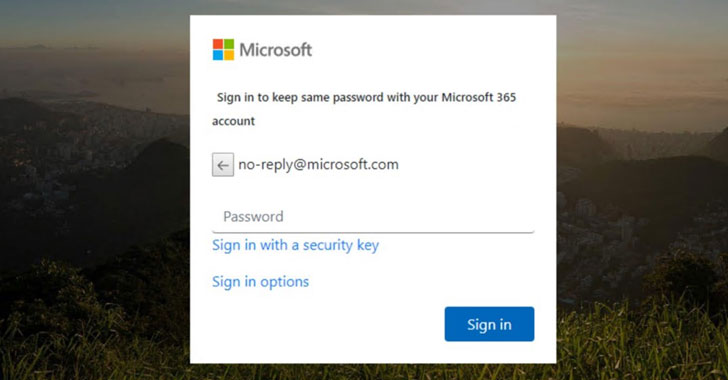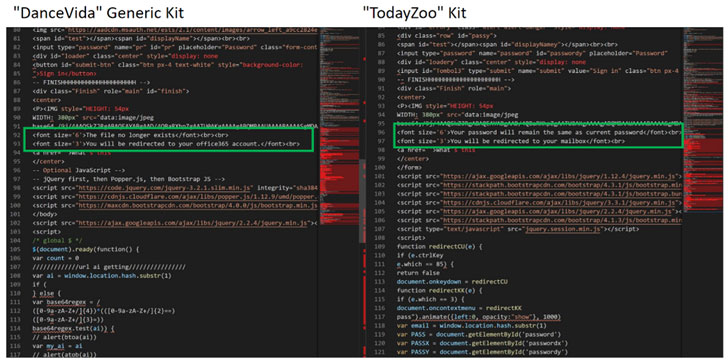Products You May Like
Microsoft on Thursday disclosed an “extensive series of credential phishing campaigns” that takes advantage of a custom phishing kit that stitched together components from at least five different widely circulated ones with the goal of siphoning user login information.
The tech giant’s Microsoft 365 Defender Threat Intelligence Team, which detected the first instances of the tool in the wild in December 2020, dubbed the copy-and-paste attack infrastructure “TodayZoo.”
“The abundance of phishing kits and other tools available for sale or rent makes it easy for a lone wolf attacker to pick and choose the best features from these kits,” the researchers said. “They put these functionalities together in a customized kit and try to reap the benefits all to themselves. Such is the case of TodayZoo.”
Phishing kits, often sold as one time payments in underground forums, are packaged archive files containing images, scripts, and HTML pages that enable a threat actor to set up phishing emails and pages, using them as lures to harvest and transmit credentials to an attacker-controlled server.
The TodayZoo phishing campaign is no different in that the sender emails impersonate Microsoft, claiming to be password reset or fax and scanner notifications, to redirect victims to credential harvesting pages. Where it stands out is the phishing kit itself, which is cobbled together out of chunks of code taken from other kits — “some available for sale through publicly accessible scam sellers or are reused and repackaged by other kit resellers.”
Specifically, large parts of the framework appear to have been lifted generously from another kit, known as DanceVida, while imitation and obfuscation-related components significantly overlap with the code from at least five other phishing kits such as Botssoft, FLCFood, Office-RD117, WikiRed, and Zenfo. Despite relying on recycled modules, TodayZoo deviates from DanceVida in the credential harvesting component by replacing the original functionality with its own exfiltration logic.
If anything, the “‘Frankenstein’s monster characteristic of TodayZoo” illustrates the diverse ways threat actors leverage phishing kits for nefarious purposes, whether be it by renting them from phishing-as-a-service (PhaaS) providers or by building their own variants from the ground up to suit their objectives.
“This research further proves that most phishing kits observed or available today are based on a smaller cluster of larger kit ‘families,'” Microsoft’s analysis read. “While this trend has been observed previously, it continues to be the norm, given how phishing kits we’ve seen share large amounts of code among themselves.”


